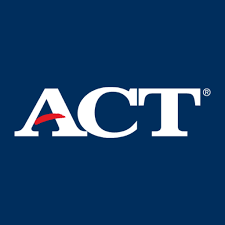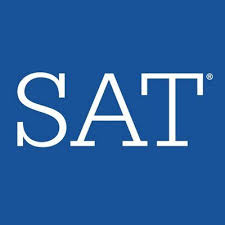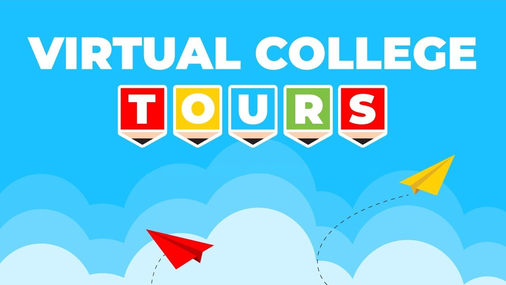Junior Class Information
-
Junior Year Quick Guide
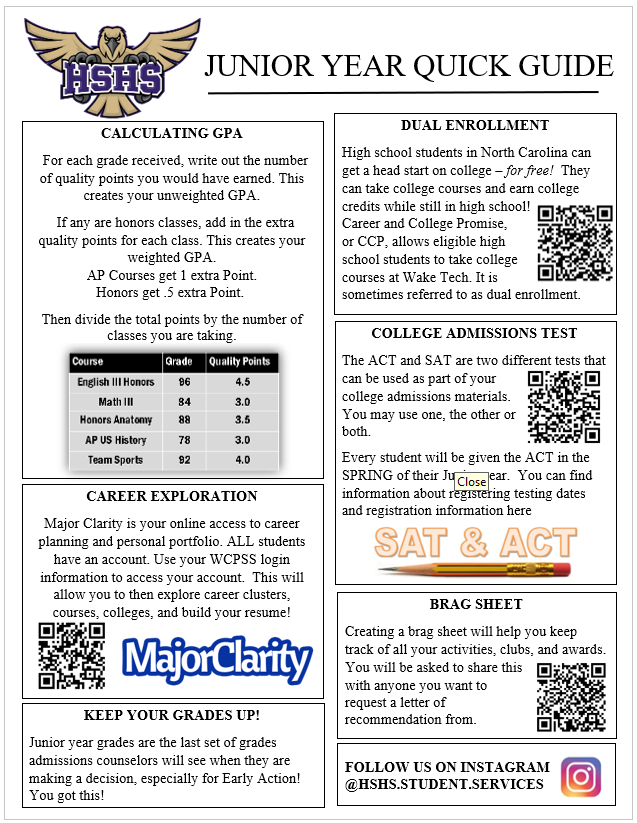
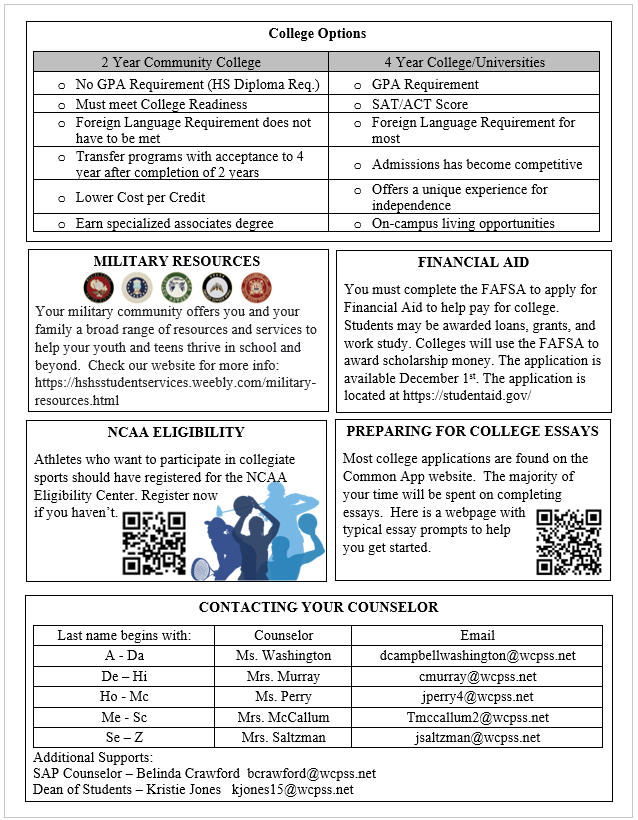
-
College planning activities to consider by the season...
Summer- Get the facts about what college costs. You may be surprised by how affordable higher education can be. Start by reading Understanding College Costs.
- Explore financial aid options. These include grants and scholarships, loans, and work-study programs that can help pay for college costs. Find out more about how financial aid can make college affordable.
- Make sure your child meets with the school counselor. This meeting is especially important this year as your 11th-grader starts to engage in the college application process.
- Encourage your child to set goals for the school year. Working toward specific goals helps your child stay motivated and focused.
- Help your child stay organized. Work with your 11th-grader to make weekly or monthly to-do lists to keep on top of the tasks required to get ready for applying to colleges.
- Help your junior get ready for the PSAT/NMSQT in October. This is a preliminary test that helps students practice for the SAT and assess their academic skills. Juniors who score well on the test are also eligible for scholarship opportunities. Find out more about the PSAT/NMSQT.
Winter- Review PSAT/NMSQT results together. Your child’s score report comes with a free SAT study plan. This online, customized plan is based on your child’s test scores and can help him or her work on areas that need improvement. Learn more about this individualized SAT study plan.
- Help your child prepare for college admission tests. Many juniors take college admission tests, such as the SAT and the ACT, in the spring so they can get a head start on planning for college. See which tests your high school junior may need to take.
- Discuss taking challenging courses next year. Taking college-level or honors courses as a senior can help your child prepare for college work — and these are also the courses that college admission officers like to see. Learn more about advanced classes.
- Encourage your junior to consider taking SAT Subject Tests. Many colleges require or recommend taking these tests to get a sense of your child’s skills in a certain academic area. In general, it’s best to take a Subject Test right after taking the relevant course.
- Encourage your child to take AP Exams. If your 11th-grader takes AP or other advanced classes, have him or her talk with teachers now about taking these tests in May.
Spring- Search together for colleges that meet your child’s needs. Once you have an idea of the qualities your child is looking for in a college, help him or her enter these criteria into a college search to create a list of colleges to consider applying to.
- Help your child research scholarships. This form of financial aid provides money for college that doesn’t need to be repaid.
- Continue checking the scholarship bulletin put out by student services and posted to the website.
- Attend college fairs and financial aid events. These events allow you to meet with college representatives and get answers to questions. Your child can ask the school counselor how to find events in your area.
- Learn new skills — and colleges look for students who pursue meaningful summer activities. Help your child look into summer learning programs or find a job or internship.
- Visit colleges together. Make plans to check out the campuses of colleges your child is interested in. Use a campus visit checklist to learn how to get the most out of these experiences.

